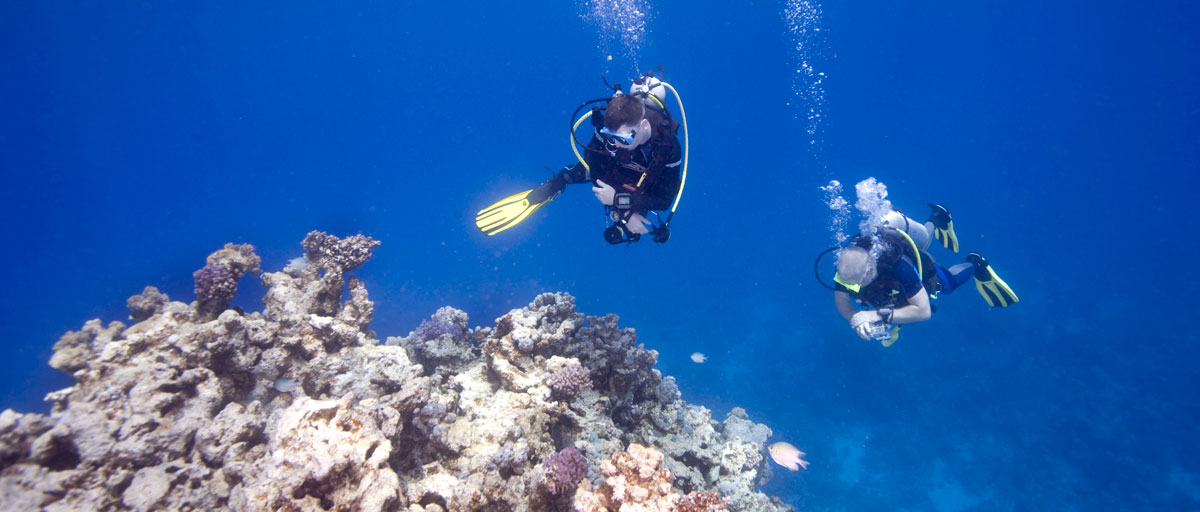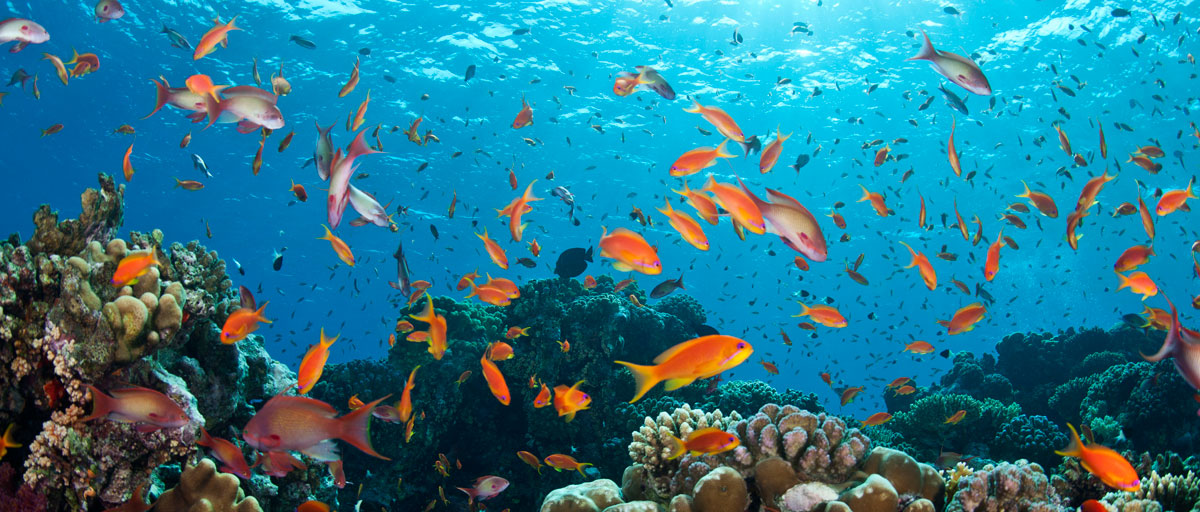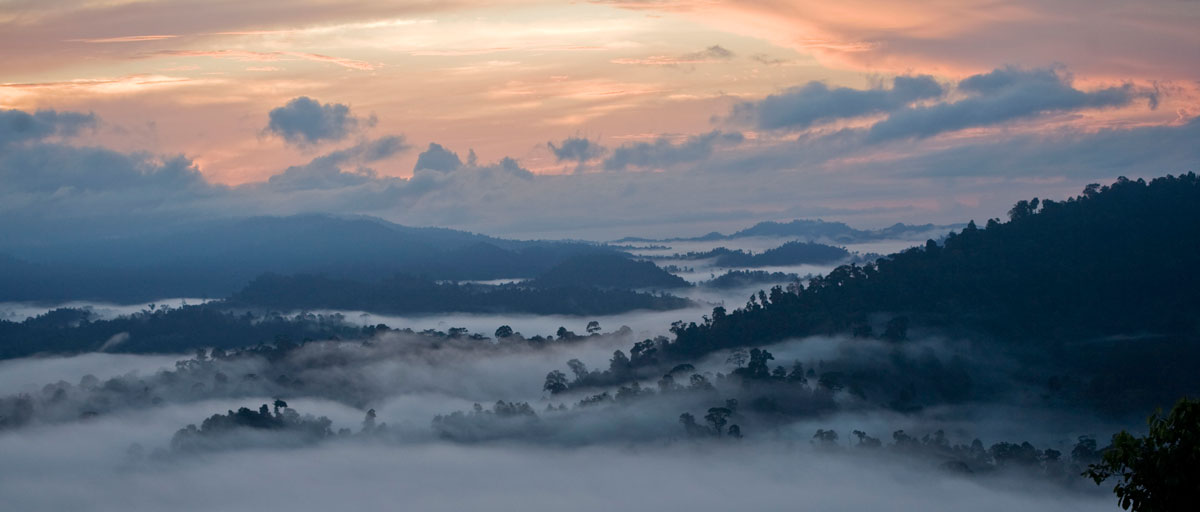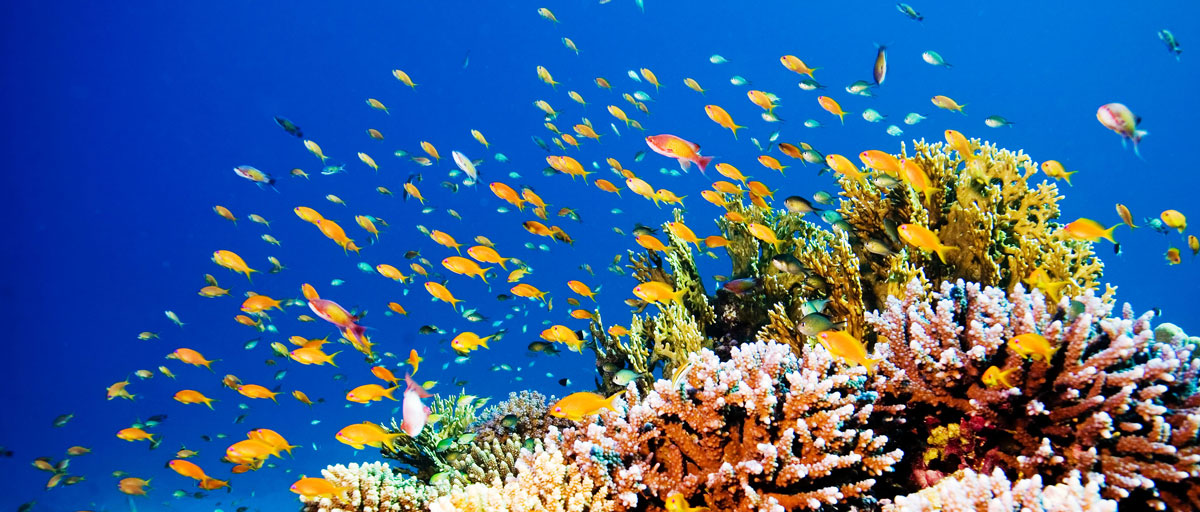
Human social, cultural and economic processes must become an integral part of ecological theory and practice as much as biological, geological and physical processes are today, researchers argue behind a new study published in the journal Functional Ecology. Photo: B. Christensen/Azote
Bildtext får vara max två rader text. Hela texten ska högerjusteras om den bara ska innehålla fotobyline! Photo: B. Christensen/Azote
Coral reefs
Revisiting coral reef ecology
Coral reefs face a new reality dominated by human impact and it is time for traditional coral reef ecological paradigms to follow suit
- The world’s coral reefs are increasingly influenced by human-induced changes like climate change, overfishing and pollution
- Consequently, reefs around the world are shaped by human drivers rather than their long-term natural biophysical setting
- This warrants a revisiting of traditional coral reef ecological paradigms and a novel approach which the researchers call “social–ecological macroecology”
Research done in locations with limited direct human influence has taught ecologists a lot. They show how coral reefs are shaped by natural variations in wave energy, temperature, depth and other biophysical factors.
But things have changed. We live in a completely different world where humans are increasingly dominating and having an impact on the environment. That includes coral reefs too and and it is high time for traditional coral reef ecological paradigms to follow suit, says a new study, led by Gareth Williams from the School of Ocean Sciences at Bangor University, UK.
“We are convinced that human social, cultural and economic processes must become an integral part of ecological theory and practice as much as biological, geological and physical processes are today,” says Magnus Nyström, one of the authors behind the new study, published in the latest issue of Functional Ecology.
The author list of the new article includes the three centre researchers Albert Norström, Jean-Baptiste Jouffray and Magnus Nyström, as well as five colleagues from Bangor University, Lancaster University, NOAA and Stanford University.
Wake up to the new reality
The article starts by establishing that we all live in the Anthropocene, a geological epoch where humans have become the dominant force of planetary change. This means that coral reefs increasingly are the result of rapid social, economic and cultural influences rather than being a product of their natural environmental setting.
We argue that, although biophysical drivers still influence ecosystem structure and function at particular scales, their ability to offer predictive capacity over coupled social–ecological systems is increasingly weakened as we move further into the Anthropocene
Albert Norström, co-author
The researchers argue that coral reef ecologists must now adapt to this new reality where humans cause everything from global changes, like global warming and ocean acidification, to more local impacts like overfishing, pollution and spread of disease-causing bacteria.
“This warrants a revisiting of traditional ecological paradigms and theories and either adapting them so that they capture contemporary dynamics or developing novel social–ecological theories,” says Magnus Nyström.
This will be challenging, they write, and it will require much better collaboration between researchers in the natural and social sciences.
Time for a new social-ecological macroecology
Traditionally, coral reef ecologists have been mostly interested in so-called proximate drivers of change, like fishing and pollution, rather than their underlying socioeconomic and cultural drivers, sometimes referred to as distal drivers. This calls for an urgently needed shift to a truly interdisciplinary collaboration between the natural and social sciences, the researchers say.
Along these lines they propose a novel approach called “social–ecological macroecology”. It is about both testing the robustness of existing coral reef paradigms while also exploring how to adapt them or even develop entirely new paradigms. The bottom line: our own species must become integrated part of the paradigms rather than merely seen as the drivers of patterns and changes studied within coral reef ecology.
“Social–ecological macroecology explicitly inserts the presence, behaviour, dynamics and ecology of the human species into the equation, and does so across spatial and temporal scales,” explains Jean-Baptiste Jouffray.
There are of course exceptions to the pattern of human dominance. Some remote coral reef islands and atolls might still be more influenced by natural biophysical drivers than by the small subsistence-based human populations that depend on them for their livelihoods.
However, many such reefs which might at first glance seem to be impacted predominantly by local natural conditions are today ultimately influenced by a global network of underlying social, economic and cultural drivers.
“The biophysical drivers are definitely still present on Anthropocene reefs, but their relative influence is likely greatly reduced. Because of this, we need more ecological studies at larger scales that explicitly treats humans as internal rather than external to the coral reef ecosystems,” the researchers write.
Williams, G.J., Nicholas A.J. Graham, Jouffray, J-B., Norström, A.V., Nyström, M., Gove, J.M., Heenan, A., Wedding, L. 2019. Coral reef ecology in the Anthropocene. Functional Ecology (First published: 21 January 2019) DOI: 10.1111/1365-2435.13290
Jean-Baptise Jouffray is a centre PhD student looking at cross-scales driver interactions in marine social-ecological systems
Albert Norström works across multiple projects focusing on coral reefs and their futures in the Anthropocene.
Magnus Nyström’s research explores resilience and cross-scale dynamics in marine ecosystems and coupled social-ecological systems at local and global scales
.jpg)











